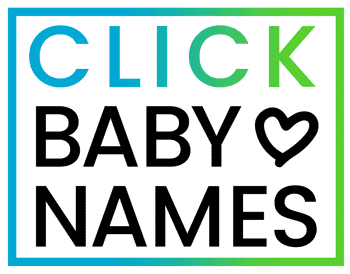If you get into the second or third trimester and realize you’re dreading checkups because you don’t like your OB/GYN, or you don’t particularly trust his or her judgment, you might wonder: Can you change prenatal caregivers, even during your pregnancy?
In a word, yes — unless he or she is the only doctor within 50 miles, or you’re due within a month or two. (Even then there are options, but it will be a lot more complicated.) Should you, though? And will it be pretty easy? Those questions aren’t as simple to answer.
Prenatal care with Doctor No?
Before deciding whether or not a switch makes sense, you need to get really clear on what you do want in a caregiver, and then get clear on what your current physician does and doesn’t offer. (Consider making a pros and cons list.)
Usually, for a woman to want to get a new caregiver partway through pregnancy means that she and the doc have a pretty major difference of philosophy. For example, you may want a VBAC, and he’s completely against the idea.
Or maybe you don’t want to have your labor induced, but your doctor says you have to because the baby’s getting “too big.”
It could be even simpler: You don’t like his or her schedule (you’re always waiting), gender (for example, you’d rather have a woman examine you), bedside manner (a porcupine would be an improvement) — or there are other ways you just aren’t comfortable with the arrangement.
Malpractice or other major issues
If the problem you have with your doctor is more than just a difference in philosophy, and there are truly serious concerns — along the lines of malpractice, or you believe someone is behaving unethically or unprofessionally — you should seek professional legal advice and/or contact your state medical board to file a complaint.
To do a little independent research first, the American Medical Association (AMA) has a Code of Medical Ethics you can review online, while Nolo has outlined some tips on how to check out complaints that have been previously filed against a doctor or hospital.
Since changing healthcare providers can be a pretty big hassle, the first thing to consider before switching is communicating with your doctor. If face-to-face would be too hard, try writing an email or letter. You might also look into transferring to another caregiver at the same practice.
No dice? Then read on.
What are your options for prenatal care during pregnancy?
Remember that you won’t always have a lot of choices available to you, depending on your insurance and your location. Want to deliver at a particular hospital? Again, you may not have a lot of options.
Similarly, if you have a high-risk pregnancy or a specialized health issue, the number of providers who are qualified to treat you may also be limited.
Finding the right doc this time
When looking at another caregiver, the number one priority is to be sure you’re not jumping from the frying pan into the fire. Do your research by talking to friends, family and co-workers for recommendations, and look through online reviews.
Discuss your concerns in an interview with the potential new doctor. Discuss your wants and needs, and be open about how your caregiver didn’t meet your desires. Also, think about alternatives to the Ob/Gyn: Perhaps you want to consider a midwife or a family physician.
You might want to find out more about the RESPECT Model, a philosophy for caregivers to use to enhance the doctor/patient relationship. There are seven major tenets: 1) rapport, 2) empathy, 3) support, 4) partnership, 5) explanations, 6) cultural competence and 7) trust. For example, the guidelines for rapport and partnership are particularly relevant to you during pregnancy:
Rapport
Connect on a social level.
See the patient’s point of view.
Consciously attempt to suspend judgment.
Recognize and avoid making assumptions.
Partnership
Be flexible with regard to issues of control.
Negotiate roles when necessary.
Stress that you will be working together to address medical problems.
Changing to a new doctor during pregnancy: A few things to know first
So you’re not left without prenatal care, always set things up with your new caregiver before saying goodbye to the old one. (You will also need to get a copy of your medical records, for which there may be a “processing fee” of $50 or so.)
A quick note about lateral moves — that is, to another physician in the same practice or medical group: Find out if your new doctor or midwife is in the same network, because there’s the potential that the doctor you left could be the one delivering your baby if he or she is the one on call at that moment.
With everything you will be thinking about in the days leading up to birth, you probably don’t want to worry about how awkward things will be if you end up with your ex-physician on the other side of the birthing bed.
It may seem silly to care so much about how a caregiver makes you feel, but it’s not.
Birth is a big deal — physically and emotionally — and while there are a hundred factors out of your control, it makes sense to make sure that you’re at least happy with your options for the medical professional part of the equation. That is the least you and your baby deserve.
An earlier version of this article originally appeared on Pregnancy & Baby





